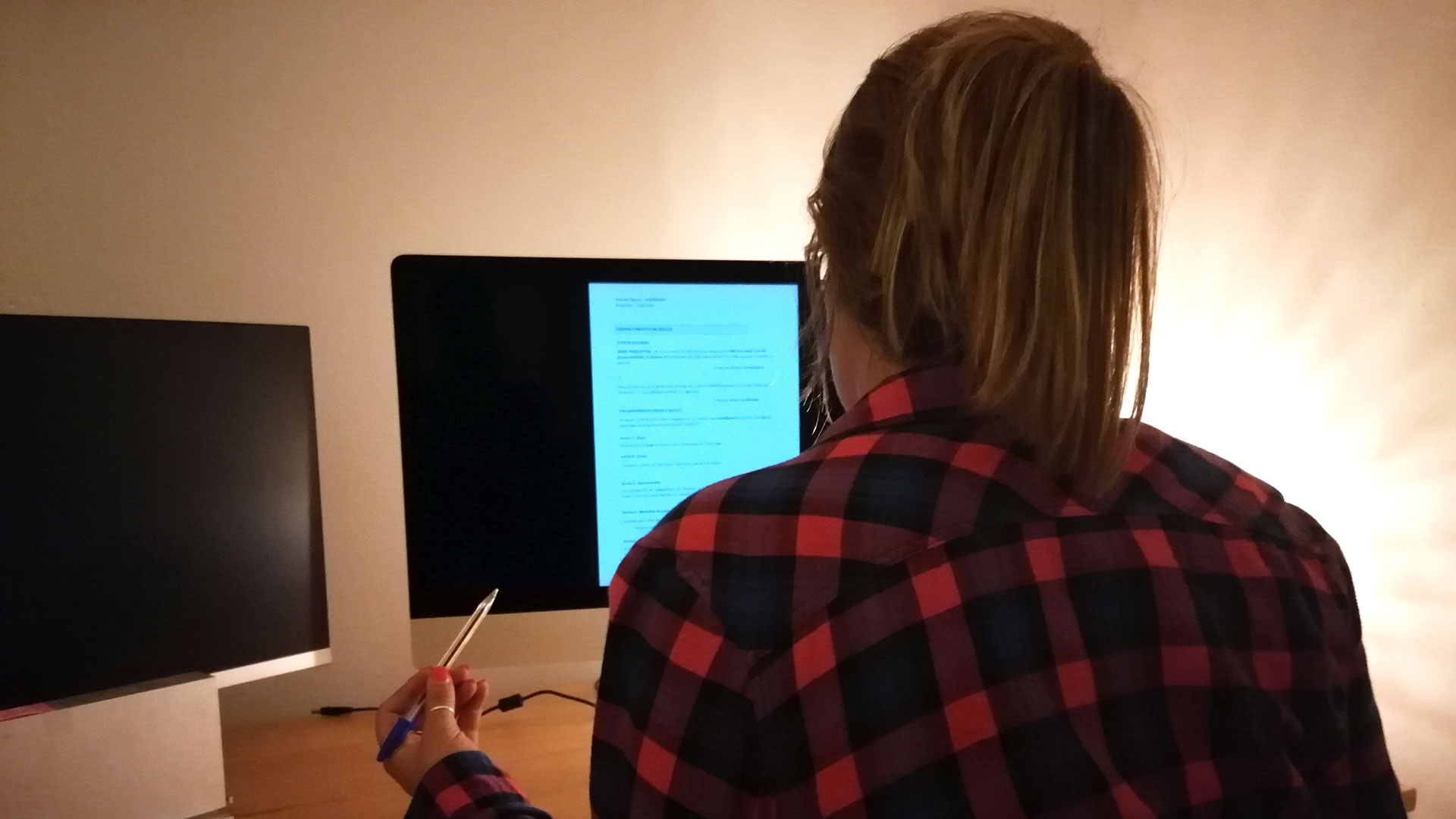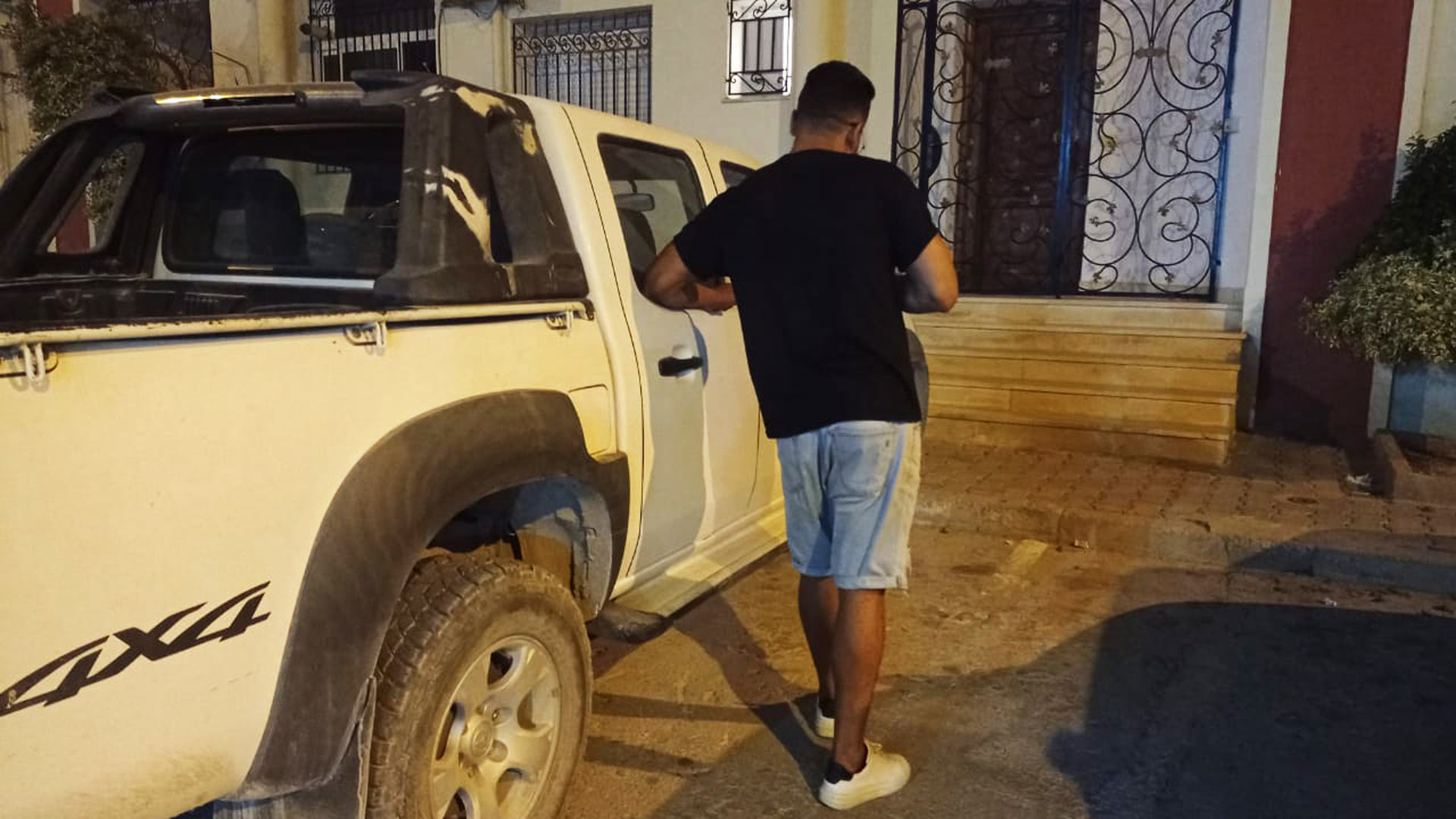It's 6pm, Nesrine finishes work and turns her computer off. Tonight, she won't have to do extra hours for once, despite an increased workload due to the winter holidays. Nesrine is 24 years old and works in customer service at a big international company outsourced to Tunisia. She works in the company’s English speaking department and handles the UK customer service section.
Her salary is around 910dt per month, but it can vary depending on the amount of extra hours, often imposed by her employer during periods of high demand. " Sometimes, for a month or two, I have to work two extra hours per day, several times a week. It gets me more money at the end of the month but it's exhausting.”
Her job guarantees her free health care coverage and offers transportation for all employees through a private bus company. She also gets vouchers of a 100dt per month.
An overview of her monthly income and expenses:
Coming from a coastal town, Nesrine has been living and working in Tunis for about a year. After finishing her international business studies at a private school, she worked for a year in her hometown before relocating to the capital.
" It’s very different where I’m from. There is no place to have fun, and people just spend their time working or studying. So after working for a year as a customer representative, I wanted to look for new opportunities in Tunis. I like that I can go out from time to time here”.
Nesrine lives in a shared house with two of friends who are also colleagues. Her part of the rent is 350dt per month. The 3 friends recently moved in together and haven’t received the water and electricity bill yet. For the past two months, they only had to pay for their internet, which is about 15dt per person, per month.
Since the beginning of the covid-19 crisis, they have all been working every day from their bedrooms, on a computer provided by the company. When they finish their shifts, the three friends divide the chores and enjoy their time together.
Nesrine's routine has changed a bit during these past few weeks, mainly due to working remotely. Being mostly at home, she now spends more time cooking, which has allowed her to reduce her food expenses. While she was previously spending more than 400dt a month, she now only spends 270dt on groceries and occasionally eating out. She uses her vouchers to cover most of her grocery shopping.
On top of this 40dt is added for cleaning supplies and hygiene products, as well as about 30dt in phone credit.
She has also naturally limited her outings, which has resulted in a reduction in transportation expenses. She now estimates this to amount to about 100dt per month for taxi rides. She also uses a shared taxi at least once a month to visit her family, which amounts to about 30dt for a round trip.
Her leisure activities mainly consist of buying new clothes, on top of what her mother frequently buys for her. She goes to the second hand markets in l'Aouina, or to stores when she's in her hometown where clothes are cheaper in comparison to the capital. She usually spends between 150dt and 200dt per month, but notes that she hasn't been shopping lately.
Before the pandemic, Nesrine regularly went to the gym which cost her around 80dt per month. Despite the gyms reopening after the confinement, she didn't go back as she preferred working out at home. " I don't have much motivation to go there anymore so I exercise at home, which is free", she says with a smile on her face.
She also used to go camping three or four times a year, but not this year. Since the confinement started in the spring of 2020, Nesrine has felt the need to spend more time at home.
“It’s not a priority at the moment. I prefer to eat healthy and take care of myself peacefully at home. Lately, I’ve been reading and writing more... ”
Nesrine has also quit her habit of going to the hair salon one a month, which used to cost her about 100dt per month for straightening and hair care - on top of her daily routine products. She has since decided to do her own hair at home, which has further reduced her expenses, although she still spends over 200dt a month on various cosmetic products.
Despite the stress related to work, she has recently drastically reduced her smoking. For a long time smoked one packet of cigarettes every couple of days, but now only smokes one or two cigarettes a week. “ One or two months ago I decided to go back to a healthier lifestyle", she explains.
On the other hand, her cannabis consumption has increased recently, and has ended up spending about 100dt this month, as opposed to 50dt the month before. Occasionally, Nesrine also buys alcohol for weekend parties or during nights out with friends, which amounts to about 50dt per month.
With all these expenses, she hasn’t been able to save money, but still wants to help her 20 year old brother who is studying in her hometown as much as she can. She gives him 50dt from time to time “ It's more like a little gesture. Sometimes I buy him something, he loves music so once I bought him some speakers."
A detailed overview of her monthly income and expenses:
Grey Area
At the end of the month, Nesrine often has to go into her overdraft or the money on her savings account, which now stands at 1500dt. “ But at the end of the month there will only be 1000 dinars left" she realistically estimates. " The end of the month is sometimes stressful. The last week or even the last two weeks, I have to be more careful."
Two or three times a year, her parents also provide her with financial support up to 200dt or 300dt at a time. " It's only when I really need it" she admits.
" They don’t mind, but it’s a source of stress for me. I would like to be completely financially independent.”
“ My parents used to cover all of my expenses, but since I started working I'm the one who takes care of everything, and it's not always easy”, she admits with a smile. " I like to be independent and to be able to cover my own needs, but I realise this comes with having to make tough choices!"
Future
When it comes to future prospects, the young woman is a bit uncertain. In the short run, Nesrine would like to finnish her masters in business administration, which was put on hold when she started working. She worries that working full time while studying might be difficult to manage though, and so hasn't started planning for that yet.
The only thing that Nesrine is sure of is that she doesn’t see herself working for her current employer for too long. She would love to start her own company in Tunisia, but she is also considering traveling and working abroad.
Nesrine explains that she’s hesitant between two future life plans: staying in Tunisia and starting her own business, or leaving and working somewhere else. She thinks her excellent English skills are a valuable asset that would make it easier for her to find a job internationally.
“ If I dare to dream big, I would really like to go to Norway. I have friends there who have told me about their life, it seems quiet”, she says. “ But if I leave, it will be for a long time. I would like to settle somewhere for good, not only to save money in order to come back to Tunisia. I want to be able to live in the moment and enjoy myself, wherever I am.”






